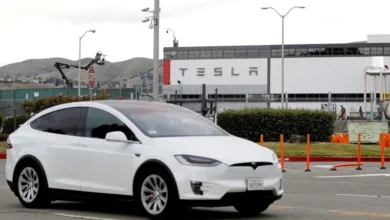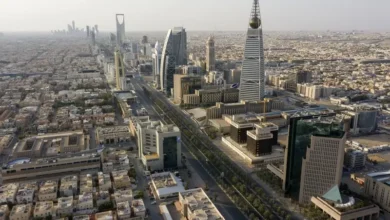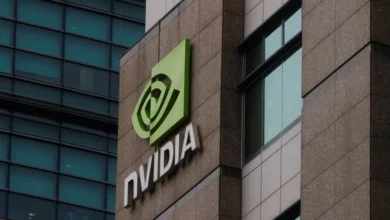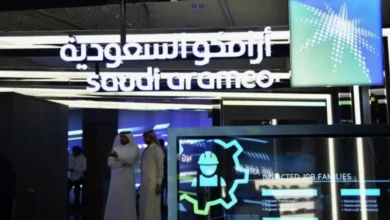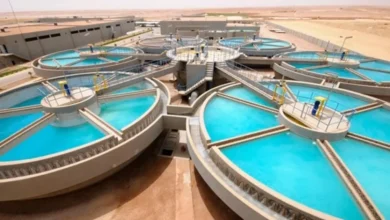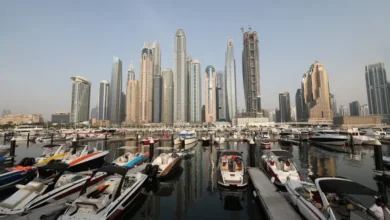Developing Saudi supply chain, EV charging network can lower ownership cost: Lucid VP
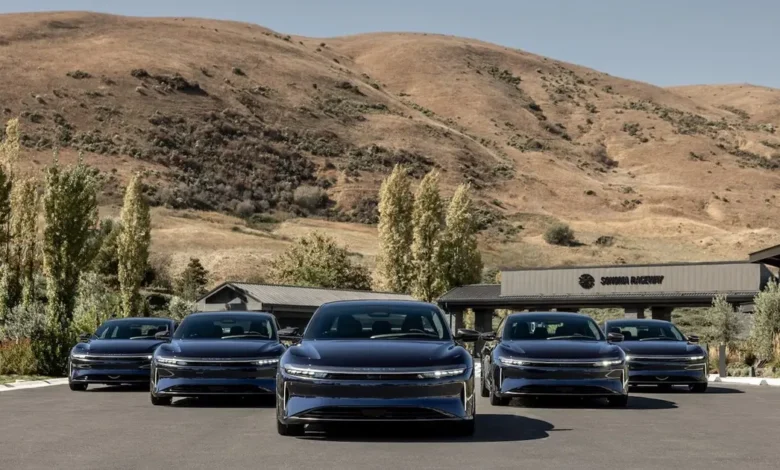
The cost of owning an electric vehicle in Saudi Arabia will decrease as the Kingdom rapidly establishes a local supply chain and develops infrastructure for EVs, a senior official from the American automaker Lucid told Al Arabiya English.
Speaking on the sidelines of the Future Investment Initiative in Riyadh, the Vice President and Managing Director of Lucid Middle East Faisal Sultan said that the Kingdom’s plans to set up 5,000 fast chargers and create synergy across the EV supply chain, will “translate to the consumer” in the form of financial savings.
In October, the Public Investment Fund and the Saudi Electricity Company announced the formation of an EV infrastructure firm – EVIC – to further the Kingdom’s emissions targets and make EV ownership more attractive to the local population.
On a consumer level, Saudi Arabia does not currently incentivize the ownership of EVs.
In the US and other parts of the world, governments are persuading car owners to make the switch from Internal Combustion Engines (ICE) to EVs, through incentives including tax credits. In Oman, electric cars are exempted from customs tax and registration fee, and EVs and their spare parts sold locally are exempt from value-added tax (VAT).
However, the support mechanisms offered by the Kingdom on a corporate level for companies with a Saudi presence include the Saudi Industrial Development Fund and the Human Resource Development Fund; two of many incentives for industries to set up shop in one of the largest-growing economies in the world.
The Saudi wealth-fund backed Lucid, headquartered in California, is among leading EV competitors in a high-demand, future-proof automobile segment. Their growing presence, made larger with a new assembly plant in the Red Sea coastal King Abdullah Economic City, will offer greater service to the Middle East and North Africa region, Sultan said.
Launching the Saudi plant also marked the Kingdom’s first-ever vehicle manufacturing facility.
While Lucid do not have plans to establish their own charging network like Tesla did in the States, they are reportedly collaborating with leading providers like Electrify America in the US and EVIC in Saudi Arabia to provide charging solutions to their consumers.
Lucid Motor’s vehicles offer some of the industry’s leading range, fastest charging capabilities and more luxury than many of its competitors. With the Saudi expansion, which Sultan said is part of the company’s goal to “drive EV adoption,” it plans on capturing a primitive-to-EV region with a planned pit stop in the neighboring United Arab Emirates.
Countries like the UAE “are on the radar for us to enter soon,” Sultan said. “Every country has some demand. We’re very strategically choosing which markets. [Saudi Arabia] is a good example of that, a lot of demand here in this segment,” he added.
The UAE’s EV market, like many first adopters in the Western hemisphere, is overridden by Tesla, with a minor share of grey market brands like Hyundai and Volkswagen. Grey market products are those not sold in a region or country by an official, authorized supplier.
A few luxury options like Mercedes-Benz, Audi, Porsche and BMW EVs take up a small chunk of the up-and-coming Gulf market.
Globally, the International Energy Agency estimates EV sales to climb drastically, as much as 14 million in sales by the end of 2023. This is considered a positive shift since road transport reportedly accounts for 15 percent of the global energy-related emissions, according to the IEA.
Saudi demand for EVs increasing
China, Europe and the US remain the top three EV markets, but demand in Saudi Arabia is increasing.
“Three years ago, there were no EVs here [in Saudi Arabia],” Sultan said.
However, Lucid is now fielding “thousands of orders,” according to Sultan, who declined to give a specific number, adding that the novel Saudi factory has so far assembled nearly 200 vehicles. Lucid’s first facility, which remains the “mothership” as Sultan described it, will service the EV maker’s North American and European markets.
“I think by 2030, you will see at least 20 to 30 percent of the vehicles in the country to be electric vehicles new car sales. And for sure, globally, by 2030, everyone is predicting 50 percent plus battery electric vehicles to be sold as new cars.”
Over 55 percent of Lucid’s workforce are Saudi nationals, Sultan said, adding that many on the production line and finance department are trained for some months in the Arizona plant.
In June, Al Arabiya English learned that the Kingdom is experiencing a surge in the usage and demand for electric vehicles (EVs) amid nationwide plans to reduce its carbon footprint and diversify its non-oil economy.
Lucid is set to reveal its ‘Gravity’ model at the Los Angeles Auto Show next month.
